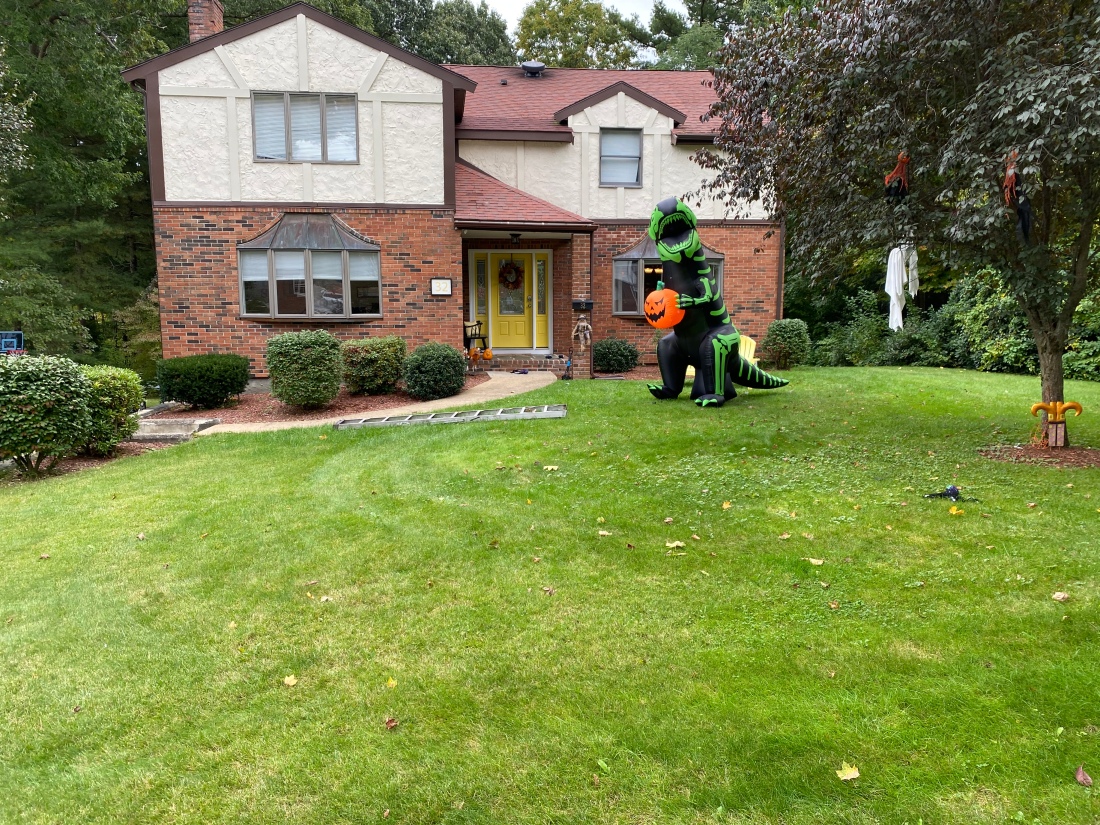I’ve nicknamed the latest additions to my a.m. routine the “morning meds.” I spend one to two minutes on a guided meditation from an app on my phone, and then I read a poem. A little later, weather permitting, I do a walk-and-think. Most of April I’ve been working through John Keats’s Poems, in order, as well as my town’s connector streets.
Poems was published in 1817. Most of the poems are short. Critics reacted relatively positively, though most noted the unevenness of the work. This is an accurate assessment: some of these verses made me wince. Many deal with Keats psyching himself up for the profession. He wants to be a poet, but he’s not sure he’s good enough.
When I first imagined myself as a writer, Keats’ progression from a mediocre poet with promising flashes to a genius in control of his art over the course of four or five years was reassuring and inspirational. The critics were sometimes vicious about his work, but, as they say, nevertheless he persisted. As it turned out, I never managed to follow the same trajectory. I was easily deterred by criticism and (this may have been the deciding factor) not a genius. Still, there was the bond of insecurity. Mornings being one of the most insecure parts of my day, I find Keats’ worries strangely comforting as I get my headphones and jacket and head outdoors.
Connector streets are the ones you take when you’re trying to get from one end of town to another, biggish streets with a fair amount of traffic. I’m saving the side streets for later in the spring, when the trees and flowers are in full bloom. The morning’s connector streets are Main, which runs north-south, and Chestnut, which runs east-west.
I’m eager to see the progress on the new house near the intersection of Chestnut and Main. For years there’d been a stone house on the site. Whoever lived there held “garage sales” every weekend. A few months ago the lot had been razed to the dirt. Then appeared a foundation. Today there’s a frame and some walls. A contractor’s pickup truck blocks the sidewalk. I edge around it and peek inside the skeleton. Two-car garage, central staircase. It’ll probably turn out to be yet another colonial with a statement window over the front door.
I wonder how Keats would feel about the scenery I’m passing on Main Street. There’s some green around—trees, some lawns, flowers in planters outside some of the stores—but maybe not enough to please him. I enjoy it, though: the teens waiting for the bus, a pizza shop, a gas station—finally regular is less than $4/gallon, hooray—the fire station, our dentist’s office, the rectory of St. Bernadette’s, a lawn with a sculpture of a Native American with a headdress in silver and bronze, a store that makes gravestones, and, on the corner, the best bar and grill in town.
This morning’s sonnet was the strongest so far in these April readings. Number XI, “On First Looking into Chapman’s Homer.” It’s the Stout Cortez one, in which Keats and a friend flip through George Chapman’s translation of the Iliad, done in a wilder, less refined style than the versions in vogue in England at the time. On reading Chapman, Keats feels as though he finally “gets” Homer. He compares the experience to a scientist finding a new planet (Uranus had been discovered in 1781) and then to the explorer Cortez’s first glimpse of the Pacific Ocean from a peak in Darien. These are curious choices. Darien, a region in Central America that was intended to be Scotland’s big foothold in the New World in the late 1600s, turned out to be a failure that nearly bankrupted the country. Also the conquistador who encountered the Pacific was Balboa, not Cortez. Facts and history aside, it’s a beautiful poem.
The Iliad’s been on my mind this week, even before Sonnet XI. I’ve read translations, long ago, and recently finished Madeline Miller’s The Song of Achilles for book club. Miller’s novel focuses on two characters from the epic, Achilles and his lover Patroclus. At one point Achilles and Patroclus have been dragged into the Trojan war and they have a big meeting with Agamemnon and the other generals and I realize that these characters are just a little part of Homer’s enormous story.
I retrace my steps, again passing the new house. Will the statement window will be rectangular or arched? The exterior gray, white, or blue? Maybe the builders will add a wraparound porch. Maybe some Helen will live here and relax on that porch in the evenings, and some Paris will see her and spark a war…The Iliad is so damn big—vast as space, deep as the ocean. My mind spins towards heaven at the thought of it. I feel like a watcher of the skies/when a new planet swims into her ken.



